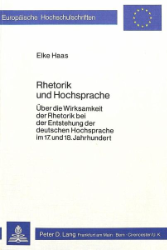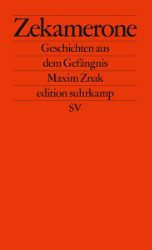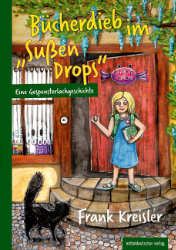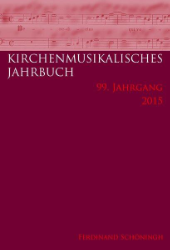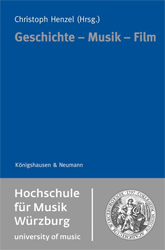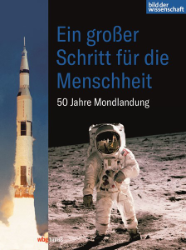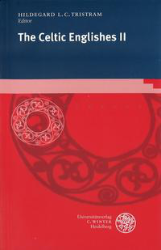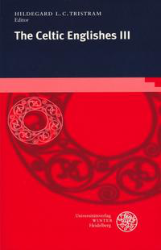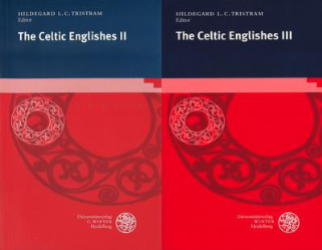Kundenlogin
Wenn Sie noch kein Kundenkonto haben, können Sie sich hier registrieren. Sollten Sie Ihr Passwort vergessen haben, können Sie hier ein neues Passwort anfordern.
Wenn Sie noch kein Kundenkonto haben, können Sie sich hier registrieren. Sollten Sie Ihr Passwort vergessen haben, können Sie hier ein neues Passwort anfordern.

Shakespeare's Sonnets: Loves, Layers, Languages
Edited by Sonja Fielitz.This volume does not only testify to the longevity of the Bard's sonnets by covering various original aspects from their publication to the present but also takes them beyond England, that is, to Wales and Scotland, and to the Continent. The fresh idea behind it is that Shakespeare's sonnets are structured around shared themes, common situations, characters and specific effects which may even give them a 'musical' quality. The section on 'Loves' deals with the texts themselves, that is, matters of gender and sex, including the fictional identity of the "dark lady" and the "sweet youth". 'Layers' does not only refer to the general idea of 'layers of meaning' but rather to various degrees of friction and synthesis between form and content, and word and image. 'Languages' implies the (linguistic) afterlife of the sonnets not only in Great Britain, but also in (regional) languages such as Welsh, Scottish, Esperanto, Latin and German dialects. Contributors include Hans Ulrich Gumbrecht, Stanley Wells, Paul Edmondson, Paul Franssen, Roy T. Eriksen, Erich Poppe, Wolfram R. Keller, and Wolfgang Weiss. - Contents: Sonja Fielitz: Introduction. An ever-fixed mark: Shakespeare's Sonnets. -- I. Prelude: 1. Hans Ulrich Gumbrecht: Touched by Shakespeare's World. -- II. (Fe)male Matters: 2. Stanley Wells: Shakespeare's Sonnets and Sex. - 3. Paul Edmondson: The Effects of Shakespeare's Sonnet. - 4. Paul Franssen: How Dark is the Dark Lady. - 5. Thomas Kullmann: Shakespeare and the Love of Boys. -- III. Afterlife: Great Britain and Beyond: 6. Roy T. Eriksen: Shaping the Sonnet Italian Style. Tasso, Daniel and Shakespeare. - 7. Erich Poppe: Welsh Contexts for the Sonnet. The years 1833/1834, c. 1600, and 1909 (and after). - 8. Wolfram Keller: "The Part to Play". Edwin Muir's Sonnets and the Scottish Literary Renaissance. - 9. Boris Dunsch: The Essential Likeness under the Semblance of Diversity. Alfred Thomas Barton's "Guielmi Shakespeare Carmina". - 10. Uwe Meyer: "Cu mi komparu vin al somertago?" William Auld's 1981 Esperanto Translation of Shakespeare's Sonnets. - 11. Christian Pauls: "A 'Fourteen-Liner most Apposite'?" Taking a Cross-eyed Look at the Sonnet in Peter Reading's "Diplopic". - 12. Wolfgang Weiß: "... too excellent for every vulgar paper to rehearse?" Shakespeare's Sonnets in selected German Dialects. - XIII,185 Seiten, gebunden (Anglistische Forschungen; Vol. 411/Universitätsverlag Winter 2010)
Bestell-Nr.: 14770
ISBN-13: 9783825358006
ISBN-10: 3825358003
Erscheinungsjahr: 2010
ISBN-13: 9783825358006
ISBN-10: 3825358003
Erscheinungsjahr: 2010
Weitere Bücher der Reihe »Anglistische Forschungen«
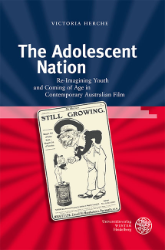
Herche, Victoria
The Adolescent Nation
Re-Imagining Youth and Coming of Age in Contemporary Australian Film
The Adolescent Nation
Re-Imagining Youth and Coming of Age in Contemporary Australian Film

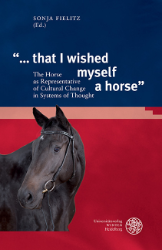
"...that I wished myself a horse"
The Horse as Representative of Cultural Change in Systems of Thought
The Horse as Representative of Cultural Change in Systems of Thought
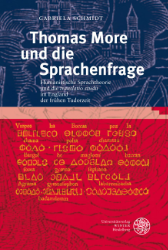
Schmidt, Gabriela
Thomas More und die Sprachenfrage
Humanistische Sprachtheorie und die 'translatio studii' im England der frühen …
Thomas More und die Sprachenfrage
Humanistische Sprachtheorie und die 'translatio studii' im England der frühen …
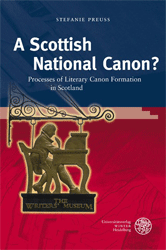

Weitere Bücher im Sachgebiet »Shakespeare und Shakespearezeit«
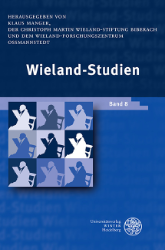
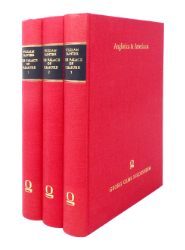
Painter, William
The Palace of Pleasure
Elizabethan Versions of Italian and French Novels from Boccaccio, Bandello, …
The Palace of Pleasure
Elizabethan Versions of Italian and French Novels from Boccaccio, Bandello, …

Kuhl, Bastian
Verhandlungen von Kindlichkeit
Die englischen Kinderschauspieltruppen der Shakespeare-Zeit
Verhandlungen von Kindlichkeit
Die englischen Kinderschauspieltruppen der Shakespeare-Zeit

Suhren, Katrin
Shakespeares Charismatiker
Herrschaftsentwürfe in den Historien und Römerdramen im Blick Max Webers
Shakespeares Charismatiker
Herrschaftsentwürfe in den Historien und Römerdramen im Blick Max Webers
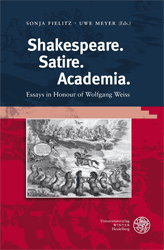
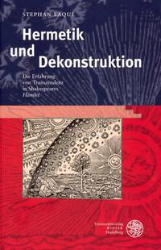


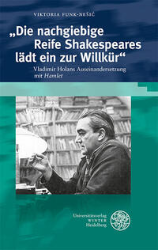
Funk-Nesic, Viktoria
"Die nachgiebige Reife Shakespeares lädt ein zur Willkür"
Vladimír Holans Auseinandersetzung mit 'Hamlet'
"Die nachgiebige Reife Shakespeares lädt ein zur Willkür"
Vladimír Holans Auseinandersetzung mit 'Hamlet'

